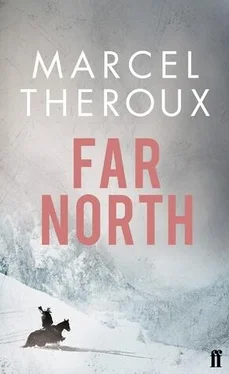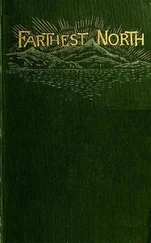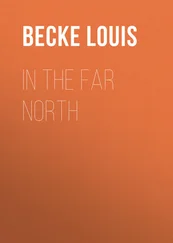The landscape in front of my eyes began to fizz and bubble as they cut me down. I hadn’t ever passed out in my life before, and I was damned if I would now, but my legs trailed on the ground behind me like a pair of limp sausages as they carried me back to the cell.
*
They let me sit in the dark for days after the sentence was passed because I told them my arm was still too damaged for heavy work. A few of them didn’t like that, saying that my other arm looked good enough, and what was the point feeding a layabout and a traitor when plenty of honest people were going hungry? I managed an inward smile at that, because it reminded me of so many arguments we’d had at home about the incomers.
I was told my rations would be cut until I made myself useful to them. They gave me mouldy pickled cabbage the first day and a chunk of bread.
The bread was stale and heavy. I turned it over in my hand. It was the first I’d seen for a while. In its way, almost as much as the plane, that sour old crust gave me a jolt of hope. The summers had grown warmer in the north, but there was still no wheat planted at our latitude.
So much of Horeb remained a mystery to me, but they had flour, and they must have been getting it from somewhere. The thought hadn’t struck me before. But once I started turning it over in my mind, I saw other ways that those people were linked to a wider world. Boathwaite’s letters, or whatever he’d been working on when I went to see him in his quarters. Even his suspicion of me, and the fake conspiracy, meant that in his head I fitted into something larger and more populated than Horeb and the wilderness around it.
*
Until it came staggering into the drugstore, I’d never given much of a thought to the world outside my town. Charlo yes. He was buried in maps and atlases, and he had the tongue and memory for other languages.
Me, I was an outdoors girl. I was restless and impulsive. The trees outside the city were the world, and the house was home, and the highway running east to west led I didn’t care where.
To say we were an inward-looking people was like saying that the Tungus found the reindeer useful, or that the Siberian winter could be chilly. My mother had grown up in a house that was warmed in winter and cooled in summer. But when she followed my father to settle this newworld, she left all that behind. She wasn’t the only one. Many people saw a kind of virtue in what was simple and homespun and patched in the days before that became the only thing there was.
My mother despaired sometimes that I was not a girly girl, not fair and curving like her, but tall and lean, with a chest as flat as Charlo’s. I was like dad, all angles, hard red elbows, and a big nose to cap it. She’d try to interest me in household things, knitting and wickerwork and caning chair-seats, but without much luck.
One grey spring day when I was out of school with croup she let me lie in their bed, the wrought-iron one with brass balls at the corners that they’d brought with them from Chicago and which had loose joints that made it jingle when you moved on it.
I was scratchy and restless. I must have been ten at the time. My mother brought me basins of hot water with lavender in it to ease my breathing. She took the lavender from a chest in her cupboard. She was so patient with my griping.
‘Here, M,’ she said, which was as close as she had to a pet name for me, ‘I want to show you something. But you’ve got to swear not to tell your father.’
That immediately made me forget my sore throat. I think of her turning half out of the cupboard, her long fair hair almost at her waist, and some mischief in her eye — which if you knew my mother at all, you would hardly believe.
‘Swear?’ That one word struck me as extraordinary. As Quakers, we were held to such a high standard of rectitude that to swear was against our religion. We told the truth all the time, hand on the holy book or not, and to suggest otherwise was considered an attack on our dignity.
‘This is something for the two of us only. Understand?’
I nodded and she brought out of the cupboard the carved lacquer box that she had kept the little vial of lavender oil in.
She put the box down on the bedclothes and let me investigate it myself.
It was of a kind of Chinese design, round-shaped, with a big carved wooden handle that stood proud of it.
The handle was dark red, and the lid black, and on it was a faint drawing in chipped gold paint of a man under a willow tree. The lid was worked on tight and she had to help me to shunt it off.
Thinking back, it must have been a sewing box because of its shape and the way it was built in layers. The topmost layer held ointments and dressings and little glass ampoules of medicine. I could tell that wasn’t her reason for showing it to me. Her eyes had a sly laugh in them and she was quick to help raise up the tray and open the lower part of the box.
My first feeling was one of disappointment, as the contents were drab. The first layer had had a touch of the forbidden about it, but this looked like what I cleaned out of my school desk at the end of each year: pencil shavings, crumpled paper, elastic bands.
‘These are a few things from before I met your father,’ she said, and took one of the pieces of crumpled paper and set it in front of me. Inside it was a silver stone, about the size of an apple, but flatter and hard and cold. It lay there, dead and unresponsive.
‘Not working,&rsqu she said. She took it out of the room and lay it somewhere, then came back and we went through the other things in the box together. Trinkets really. A leaving card. A lock of hair. A broken watch that she said had belonged to her father. Nothing that was really equal to the sense of mischief she’d brought to our conspiracy. I felt deflated and my throat was hurting again.
She went out of the room and brought the stone back. ‘I just hope there’s enough sun today,’ she said as she set it back down in front of me.
It was warm to the touch now from having laid out in the sun, and on the skin of it you could see little shapes in light, like the outline of stars in the dark, but green. I was almost afraid to handle it.
‘Go ahead,’ said my mother. ‘It won’t bite.’
I prodded it again and the stone seemed to leap into life. A picture appeared on it, but not flat and painted, lit up on one whole side of it, and moving, and speaking.
It was of girls, six or seven of them, and a bit drunk. ‘We all think you’re crazy,’ said one of them. ‘But we still love you.’
Then one of them sang off key: ‘The only man that could ever move me, was the son of a preacher man.’
And another said, ‘Not a preacher, dumbass, a Quaker.’
Then the picture froze and faded away.
‘It’s a memory stone,’ my mother said.
‘Who are they?
‘Friends from before.’
‘Before what?’
‘Before I met your father.’
I don’t think my mother was prepared for what that stone made her feel. She was curt with me afterwards. I remember what the stone says so well because I used to go up and listen to it on my own sometimes.
The stone was like no other object in our house — or our town for that matter. So flat and smooth, there was no workmanship in it. It was perfect, like a thing that had grown up from a seed. And yet somehow, it held a piece of my mother’s own past, a fragment of the life she had left behind her to come with my father.
Those girls in the memory stone are all dead by now. And everything they had is dust. One of them has lipstick on that’s smudged and it looks like she’s been kissing. I wonder about that kiss. Was it a he or a she? Was it a friendly peck on a cheek, or something more passionate? Is that him, standing just out of view, but casting a shadow over the wine-glasses, and getting a sidelong glance from her, a twinkling look, right before the stone goes dark? I can’t begin to contemplate everything that’s been lost. It’s too much for one small brain to take in, but I think about that kiss.
Читать дальше












